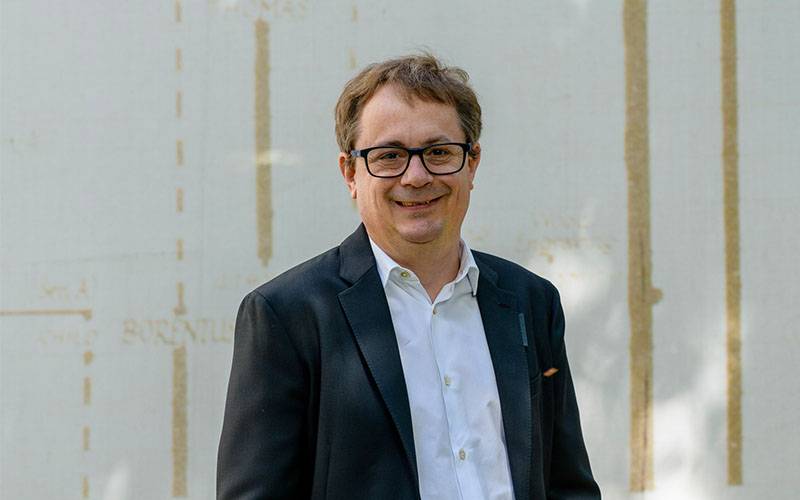This month we speak to the Director of the UCL Policy Lab, Marc Stears, to find out how the Lab is improving the health of the public.

What is your role and what does it involve?
I am Director of the UCL Policy Lab, which is based out of the Departments of Economics and Political Science. We try to create dynamic coalitions of interdisciplinary groups of UCL researchers, think tanks, campaigners, community members and representatives of government at all levels, to open up new possibilities for policy change. We work with funders to try to support that work, with the media to try to make sure it gets great press coverage, and with politicians of all parties to try to make sure there is real energy behind the ideas we come up with.
How are you improving the health of the public?
One of the key themes at the Lab is all about tackling inequality and I am convinced that could play a major role in improving the health of the public. There are so many exciting ideas across the university right now about what could be done to create more truly equal, participatory and inclusive societies but much too little of that is currently finding its way into government policy. We want to find out how we might be able to turn the dial on this. What might we all be able to do together to make the broader public, and the politicians who are meant to serve them, really care about inequality and be prepared to take the big steps needed to challenge it? We’re going to be spending a lot of this academic year looking at that question.
What do you find most interesting or enjoyable about your work?
I love listening to the huge diversity of perspectives that exist on all of the subjects that we examine. Just walking around London every day makes me excited. You know that almost everyone you pass on the street has some idea about how we might be able to make our society a better place. The Policy Lab exists to bring the brilliant economic and political ideas developed here on campus into direct conversation with all of those people, with all of those other ways of looking at the problems that confront us. How could that not be energizing?
How have cross-disciplinary collaborations shaped your work?
I used to direct the Sydney Policy Lab at the University of Sydney and when I was there we created a wonderful cross-disciplinary group to examine how Australia was going to navigate its policy path out of the Covid-19 pandemic. It was such an honour to sit in on conversations with all of these people, with their different expertise, as they learnt from each other. We brought people together from public health, nursing, infection control, mental health, sociology, politics and public policy, and the creative arts. As a result of those conversations, people’s views changed and new ideas came to see the light of day. That would never have happened had people not been willing to step out of the comfort of their own discipline and listen to the views of others.
What advice would you offer to others interested in developing cross-disciplinary work?
In my experience, the key is to work on the relationships between people before you dive into the complex, technical, work. It is only when researchers from different disciplines and perspectives really begin to trust and admire each other that they begin to genuinely listen to the challenges that they almost inevitably pose to each other. And that trust and admiration usually comes from spending time with each other and learning about what it is that motivates us and keeps us going. The Industrial Areas Foundation in the USA, which has developed some of the most exciting collaborative techniques in the world, has a catchphrase which summarises this perfectly: “relationships precede action”. If we can all remember that, then we’re likely to have much more effective cross-disciplinary connections than if we forget it.
What's next on the research horizon for you?
In addition to directing the Lab, I am trying to finish writing a book with a good friend and colleague. It is a book about England, and what it means or could mean to all of us, after Brexit and having gone through the pandemic. We visit seven places in the country, which people tell famous stories about, like Runneymede and the Magna Carta and Plymouth and the Spanish Armada, and reflect on whether those stories still have anything to tell us today. It has been a wonderful experience putting it together and it reminds me that the brilliance of this country – like all countries – lies in what happens in people’s everyday lives and not with what makes it into the history books or onto the front pages.
If you could make one change in the world today, what would it be?
There’s so much that needs to change that it is very hard to start with one! But I guess because I believe in democracy more than any other political value, it would be making sure that everyone, in every country, is able meaningfully to participate in shaping the laws that govern them.
 Close
Close

